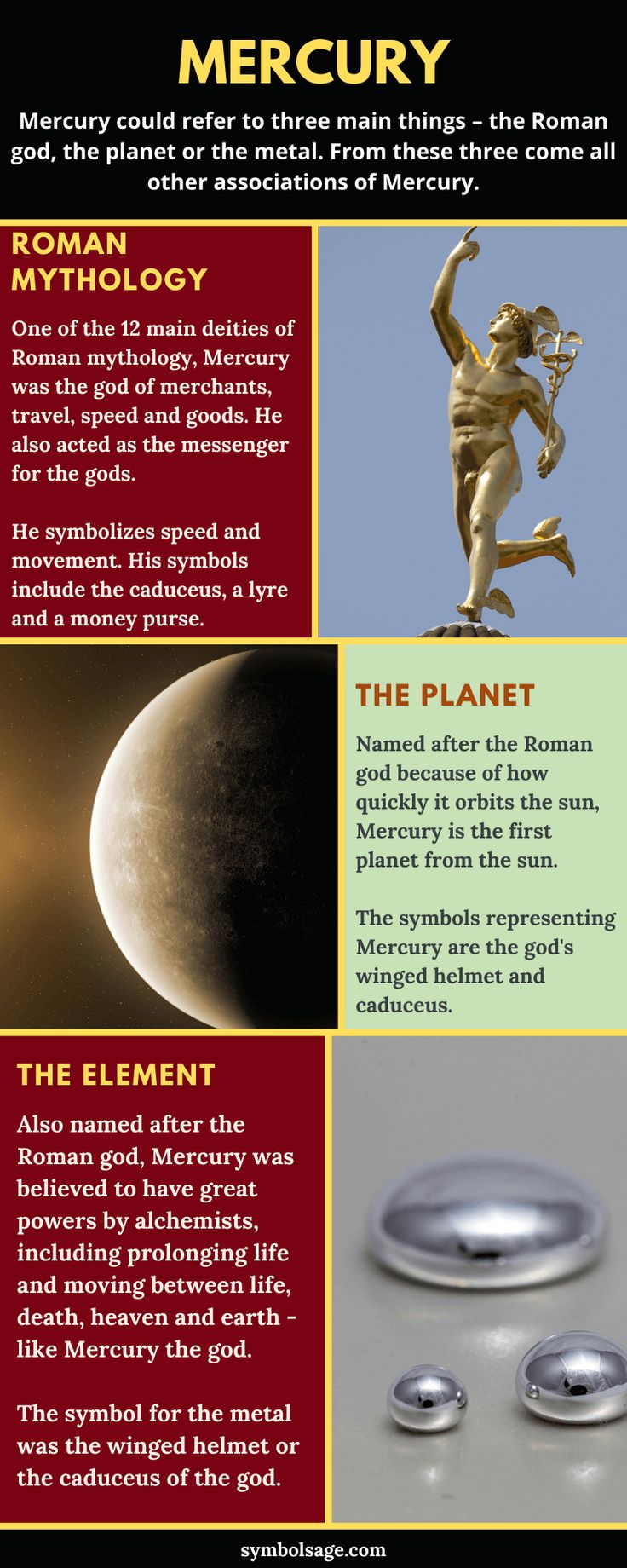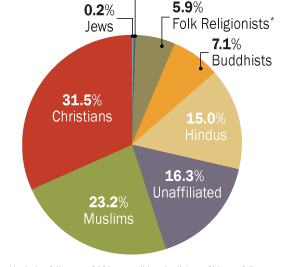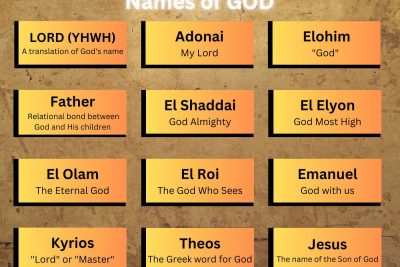
Mercury: Myths, Symbols, and Essential Facts Explained

Mercury stands as a prominent figure in both ancient cultures and modern interpretations, symbolizing various concepts that transcend time. In Roman religion, this multifaceted deity represents commerce, travelers, and even tricksters, embodying the ever-changing nature of life, travel, and trade. His dramatic influence can be seen through countless myths, historical practices, and the significance attributed to him in various cultures, echoing the rich tapestry of stories woven around his identity.
This article delves into Mercury: Myths, Symbols, and Essential Facts Explained, offering a comprehensive overview of his origins and significance in the context of Roman religion and beyond. From the connections made with Greek myths to the festival dedicated to him and the essential facts surrounding his legacy, this piece serves as a guide to understanding mercury in a deeper light, traversing the historical landscape that positioned him as a vital figure among deities.
- The Origins of Mercury: A Historical Overview
- Mercury in Roman Religion: Role and Significance
- Connections Between Mercury and Hermes: The Greek Influence
- The Cult of Mercury: Temples and Worship Practices
- Symbols of Mercury: Attributes and Their Meanings
- The Mercuralia Festival: Celebrations and Traditions
- Mercury as the God of Commerce: Implications and Representations
- The Legacy of Mercury: Cultural Impact Through the Ages
- Common Myths About Mercury: Debunking Misconceptions
- Essential Facts About Mercury: What You Need to Know
- Conclusion: The Enduring Influence of Mercury in Modern Culture
The Origins of Mercury: A Historical Overview
The essence of mercury can be traced back to its root in ancient civilizations, particularly within the Roman Empire, where he became revered as the god of commerce and communication. The historical significance of Mercury began around 495 BCE, leading to the establishment of a dedicated temple on the Aventine Hill in Rome. This temple wasn't merely a place of worship but a cultural hub where people gathered to seek blessings in their trade and endeavors.
Prior to the Roman association, mercury was heavily interconnected with the Greek god Hermes. The syncretism between these two divine figures illustrates how cultures adapted and merged their myths, thus enriching the lore of mercury. Although mystery shrouded many aspects of ancient worship, the craft of merchants and travelers was a constant thread, emphasizing how commerce was woven into the very fabric of society.
Mercury in Roman Religion: Role and Significance
Mercury played a vital role in Roman religion, reflecting the values of the society that venerated him. Deemed the protector of merchants and traders, he was integral to the daily workings of the economy. As a god of mercuryc, his influence was felt in marketplaces and along trade routes, standing as a source of hope and prosperity for many. People believed that by honoring him, they could secure success in their commercial enterprises.
This significance was further underscored during the Mercuralia festival, celebrated on May 15, which marked the temple's dedication. During these festivities, merchants would sprinkle mercury water on their goods and pray for blessings, thus reinforcing the connection between deity and commerce, and establishing a cultural norm of divinity intertwined in daily life.
Connections Between Mercury and Hermes: The Greek Influence
The connections between mercury and Hermes cannot be overstated. As the Greek mythological figure, Hermes laid the foundational archetype that mercury later embodied. Hermes was known as a trickster, a messenger, and also the god of boundaries—a role that mercury would inherit as he evolved within Roman culture. This thematic duality offered a wide range of interpretations for followers of both deities.
The essence of these intertwined identities challenges our understanding of myth and how it travels across cultures. The adaptation of Hermes into mercury did not erase his Greek roots, but rather built upon them, creating a rich legacy that speaks to the cultural exchange of ancient societies.
The Cult of Mercury: Temples and Worship Practices
The establishment of temples dedicated to mercury reveals much about the deity's formative role in society. For example, the temple on Aventine Hill became a focal point for merchants. It was here that the festival of Mercuralia took place, along with various rituals intended to invoke his favor and blessings.
- Ritual Offerings: These often included food, wine, and incense, gifts meant to please the deity.
- Ceremonial Events: The participation of traders allowed for an atmosphere rich in commerce, where people sought divine intervention.
- Integration with Local Practices: Local customs were interwoven with the worship of mercury, creating a unique cultural tapestry.
Throughout history, various practices have emerged in reverence to mercury, showcasing how the cult evolved while adapting to changing societal norms and religious beliefs.
Symbols of Mercury: Attributes and Their Meanings
The symbols associated with mercury are as significant as the deity himself, often embodying the attributes that made him a god of prominence. For instance, the caduceus—a staff entwined with snakes—became synonymous with trade and negotiation, reflecting mercury's role as a facilitator of commerce. This symbol is not only tied to business but also was often associated with diplomacy.
Other common symbols illustrated in representations of mercury include:
- Winged Sandals: Signifying swiftness and agility, they highlight the ability to travel great distances swiftly.
- Winged Cap: This symbolizes his role as a messenger, often seen carrying messages between gods and humans.
- Purse or Coin: Representing wealth and the entrepreneurial spirit, this emphasizes his direct connection to commerce and trade.
The Mercuralia Festival: Celebrations and Traditions
Among the numerous festivals observed in ancient Rome, the Mercuralia festival stands out as a vivid tribute to mercury. Held annually on May 15, it reflected the passage of seasons in the commercial calendar and acted as a reminder of the need for divine support in all ventures.
During Mercuralia, merchants carried out specific practices to honor the god:
- Sprinkling Water: Merchants would sprinkle their goods with mercury water as a sign of reverence and hope for good fortune.
- Prayer and Offering: Offerings made during the festival strengthened the bond between the deity and his worshippers, reinforcing the importance of mercury in their lives.
- Public Celebrations: Merchants often organized public events to share their successes and bolster community ties, division of wealth, and goodwill.
Mercury as the God of Commerce: Implications and Representations
Mercury emerges as a vital figure in the domain of commerce, symbolizing not just economic exchange, but also reinforcing social structures within the market. As the god of merchants and trade, his influence extended well beyond ancient Rome, impacting the very foundation of modern views on trade practices.
His portrayal in art, literature, and various forms of media helps to preserve the legacy of mercury as a representation of entrepreneurship and connection among people. The attributes associated with him—such as wealth, luck, and protection—remain relevant, reflecting the priorities and challenges faced by sellers and purveyors of goods today.
The Legacy of Mercury: Cultural Impact Through the Ages
The enduring influence of mercury stretches into contemporary culture, where remnants of his character endure in modern symbols and practices. His association with commerce is especially pertinent in today's fast-paced global economy, where the foundational principles that he represented echo through modern trade systems.
His presence can be felt in various forms, from the use of the caduceus in medical contexts to icons of commerce harnessed in branding. The archetype of the quick-witted trickster has also transcended through literature and folklore, embodying the cleverness and resourcefulness admired in various cultures.
Common Myths About Mercury: Debunking Misconceptions
Despite the clarity in many portrayals of mercury, several misconceptions linger about this complex deity. Addressing these myths helps to enhance our understanding of not only the individual but also the cultural implications of his existence.
- Myth: Mercury was only a god of trade.
Reality: While his primary role was associated with commerce, he was also the god of messages, travelers, and tricksters. - Myth: Mercury was the same as Hermes.
Reality: Although they share many traits, mercury reflects Roman adaptations of the earlier Greek character, with distinct cultural nuances. - Myth: Worship of Mercury has ceased.
Reality: The essence of mercury lives on today in various forms of recognition and homage.
Essential Facts About Mercury: What You Need to Know
Understanding mercury encompasses appreciating both his mythological significance and his socio-economic implications throughout history. Here are some essential facts about this iconic deity:
- Origin: Mercury's worship initiated in ancient Rome around 495 BCE, with ties to the earlier figure of Hermes in Greek mythology.
- Attributes: Commonly depicted with winged sandals and holding a caduceus, he embodies attributes of swiftness and commerce.
- Cultural References: Mercury's image and attributes are often invoked in literature, arts, and modern branding practices.
Conclusion: The Enduring Influence of Mercury in Modern Culture
In wrapping up our exploration of mercury, it becomes abundantly clear that this ancient deity is far from an obsolete relic of the past. With multi-layered significance ranging from commerce to trickery, and an enduring presence within cultural narratives, mercury symbolizes much about human endeavor, connection, and aspiration.
Whether through the lens of ancient rituals or contemporary business practices, the legacy of mercury continues to shape our interactions and perceptions. His rich tapestry of stories serves as a reminder of the complexities attributed to deities and the lasting human need for guidance in our quests for success, identity, and connection. The enduring myths and symbols surround this god highlight not only the past but also continue to inspire future generations. As we reflect on the essence of mercury, it becomes evident that his influence will always linger in our cultural exchange, illuminating the path for those who choose to explore its depths.
Did you find this article helpful? Mercury: Myths, Symbols, and Essential Facts Explained See more here Education.
Leave a Reply






Related posts